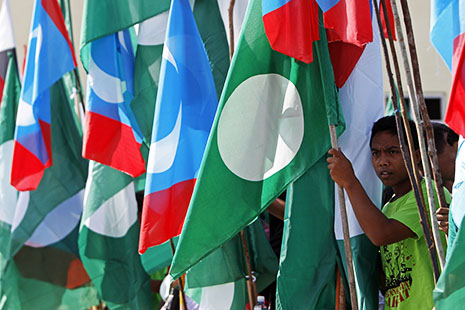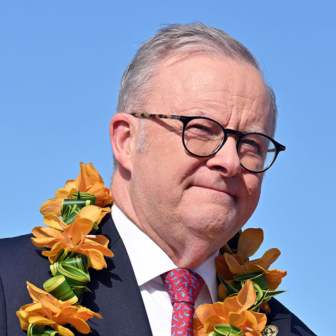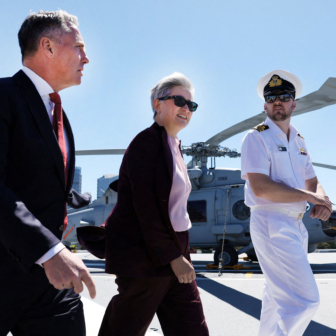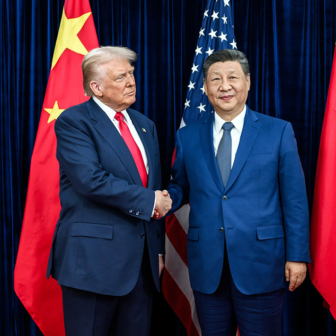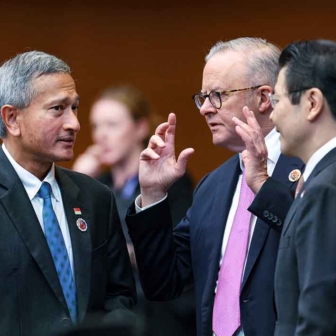FOR Malaysia, the late 1950s were a time of national upheaval and individual decision-making. In 1957, the Malayan Federation achieved its independence from Britain, replete with a newly drafted constitution and a model of citizenship shaped by an elite group of British-educated Malay Muslims. Soon afterwards, a recently married Balbir Kaur arrived in Malaya from India to begin a new life. Her sister-in-law and her husband were in the process of returning from Malaya to independent India, and they left their six-year-old son, my father, in her care.
When Balbir Kaur arrived in Malaya, the country’s ethnic groups – Malays, Chinese, Indians and “Others” – were already said to be living racially bounded lives. The educated Malay elite was part of a broader Malay nationalist group, the United Malays National Organisation, or UMNO, which had emerged from the struggle over competing visions of a postcolonial Malaya in the heady days of the 1940s. One option, Britain’s Malayan Union proposal, saw Malaya as a nation-state in which citizens would have the same status, regardless of their racial origin. But this proposal was abandoned the late 1940s as UMNO rose above the various organisations jockeying for leadership of the national struggle. All pro-independence groupings to the left of UMNO were banned, and the colonial authorities had set about eradicating the Malayan Communist Party, whose politics were Malay nationalism’s strongest competitor.
At independence, being Malay was invested with a particular political charge. The new nation came into the world fused with UMNO’s political dominance, and race and religion were symbolically elevated as the defining categories by which its affairs would be organised. Malays were constitutionally defined as Muslim, and Islam was named the religion of the Malayan Federation. From the first, UMNO was able to claim it had delivered Malaya (which would become Malaysia in 1963) to its citizens, and particularly to its Malay citizens.
That political charge has never gone away. Nor has the belief that each “race” has quite different, competing aspirations that could tear Malaysia apart if they are not balanced against each other with careful precision. This balance, UMNO has always argued, can only be maintained through a racial partnership that assures the majority Malay Muslims that their special position is secure. To the minorities, on the other hand, UMNO offers security and protection from Malays and Islam.
The racial harmony produced by this partnership was one of the guarantees UMNO made to the British in return for independence. It was expressed politically in the coalition UMNO formed with the Malayan Chinese Association and the Malayan Indian Congress soon after independence. Known as the Alliance, and later renamed the National Front, it campaigns every five years under a blue banner with a white scale at its centre, symbolising the racial balance it claims only it can deliver. The symbolism has shaped Malaysian electoral politics, and every other facet of public life, since independence. Assisted by the racial voting patterns it helped fuse with the nation it shaped, the National Front has governed Malaysia ever since.
YET elections in Malaysia are no longer as they used to be. Just as the campaign for this weekend’s national election kicked off in April, Balbir Kaur died in her sleep. Family members from Malaysia and overseas rushed to Kuala Lumpur to organise a funeral during the most fiercely contested election in a generation. Their efforts to arrange her final rites intersected with a new style of campaigning.
The family’s preferred temple, the Gurdwara Sahib Petaling Jaya, was already booked for annual Vaisakhi celebrations. As it turned out, the temple would host not only the usual crowd of Punjabi Sikhs that weekend, but a special guest as well, none other than prime minister Najib Razak.
The prime minister has been visiting Sikh temples at Vaisakhi since 2008, when the National Front was re-elected with its majority reduced to below the threshold that allows it to unilaterally amend the nation’s constitution. By opening a small space between the nation and its National Front, that election loosened the government’s capacity to conflate itself with the nation. One aspect of the public mood that produced this result was the collapse of non-Malay support for “their” component organisations of the National Front, the Malayan Chinese Association and the Malayan Indian Congress.
It seemed as if framing political action in racial and religious terms had proved unsuccessful for the nation’s minorities, and they were voting accordingly. Among the Indian population, for example, Sikh organisations had been making unsuccessful requests for funds for religious facilities and initiatives, and for Punjabi-language education. Their fortunes changed after 2008: every year since then, the prime minister has arrived at Sikh temples during Vaisakhi bearing gifts. This year, Najib Razak promised RM3.8 million (A$1.2 million) in funding to projects related to Sikh and Punjabi community life.
Najib’s presence at the temple, and the cheque he promised, illustrated the National Front’s predicament. Racial voting patterns have broken down so much that it can no longer count on any community acting as its voting “safe deposit.” Every group appears split between the National Front and its competitor, the People’s Alliance, a coalition led by Anwar Ibrahim. Anwar was once an UMNO member and Malaysia’s finance minister, and was famously sacked and jailed for sodomy in 1998. Yet the National Front is committed, to its political core, to campaigning to “races,” and so every small community must now be treated as a target group. Najib had to come to visit Punjabi Sikhs, who comprise less than 5 per cent of Malaysia’s voting population, to ask them to vote for him.
He couldn’t have stated his request in plainer terms: “I hope the next Vaisakhi you continue to invite me. I also hope to attend the next Vaisakhi in my present job.” He has also promised that “small communities like the Sikhs will enjoy greater benefits from the government” and “together, we will deliver results that directly improve the quality of life of Malaysian Indians.” Vaisakhi offered Najib a campaign opportunity, and Balbir Kaur’s prayers were delayed by nearly a week.
BUT in what sense could Malaysia’s racial foundations be said to be collapsing? And could such a collapse topple the National Front without destroying the nation along with it?
Malaysia’s racial boundaries have never been entirely stable. They survive through frequent reassertion, through statements and actions constantly broadcast to the nation by its leaders, and through successively stronger institutional measures taken by the state and the machinery of government. Yet it was one such institution, the Registrar of Societies, which recently revealed, entirely unwittingly, how artificial these boundaries are in practice.
On 18 April, as Balbir Kaur’s prayers finally began, the Registrar made a decision to rule on a matter it had previously decided to postpone until after the election. This was the dispute over the flawed internal election for the central executive committee of the Democratic Action Party, or DAP, one of the three parties in the People’s Alliance. Two days before candidate nominations closed, the Registrar ruled that it no longer recognised the committee. The potentially serious implication was that the de-recognised committee’s authorisation for candidates to nominate under the DAP banner was technically invalid. It opened up the possibility that the party name and symbol – a blue and red rocket against a white background – could not be used during the election campaign, potentially rendering the party’s candidates unrecognisable among voters. Rumours circulated via phone and social media: would the party be deregistered and its bank accounts frozen? If the Alliance won the election, could every DAP candidate be disqualified on a technicality? Could the election, and with it the nation, be taken back by the National Front?
To guard against this possibility, the DAP leadership made the unexpected announcement that its candidates in Peninsular Malaysia would campaign under the name and banner of the Islamist party running as part of the Alliance coalition. The Parti Islam SeMalaysia, or PAS, has commonly been seen as an entirely unacceptable option for non-Malays and non-Muslims, particularly because of its history of campaigning for laws based on hudud, a class of punishments in sharia for crimes considered to contravene the rights of God. If hudud were implemented, legal provisions could be introduced to remove the hands of thieves convicted of stealing, for example. Even without hudud, PAS has been portrayed as the nasty end of the Islamisation of public life taking place in Malaysia since the late 1980s. Indeed, previous iterations of the Alliance coalition have collapsed due to tensions between PAS and the DAP, a liberal and secularist social democratic party.
In its latest incarnation, however, the Alliance has held government in four Malaysian states for five years now. Although they have had their share of problems, none of these governments has presided over inter-racial or inter-religious chaos. This time, with that track record, PAS and the DAP seized on the Registar’s decision as an opportunity to demonstrate their unity and cross-racial appeal. The media has since reported election rallies and gatherings in which Chinese voters have carried PAS flags and Malay Muslims have festooned themselves in DAP flags. When there was no public outpouring of disgust at these cross-racial and cross-religious acts, the National Front’s warnings of racial chaos risked being exposed as entirely unfounded.
The PAS banner is a white full moon against a green background. The DAP’s decision to run its candidates under the PAS name and banner was quickly celebrated by PAS spiritual leader Nik Abdul Aziz Nik Mat. Skilled at the witty and colloquial quip, Nik Aziz stated, “In navigating the ship of national politics, PAS and the DAP have frequently been played against each other by UMNO and the National Front.” He added that “the barrier of suspicion has collapsed completely” and “the rocket has successfully landed on the moon.” The possibility of pan-racial and pan-religious politics emerging in Malaysia suddenly became visible for those who were watching closely.
THIS pan-racial moment also made visible the question of what kind of nation Malaysia should be. As the period of national decision-making in the 1940s and 1950s demonstrated, there have been other possible Malaysias, organised according to principles other than race and religion. Could the nation’s boundaries collapse or be crossed as a result of stray moments of possibility like that produced by the Registar of Societies’ decision? And could the possibility of an Alliance victory on Sunday be signalling a new opportunity for a pan-racial Malaysia? Will the nation’s citizens be prepared to live as post-racial Malaysians, or does the prospect truly loom as a threat too great to surmount?
No matter what the result tomorrow, that particular moment of pan-racial possibility is now over. By 20 April, nomination day, the Election Commission had ruled that DAP candidates, despite the Registar’s decision, would be permitted to run under the party name and its rocket banner. The DAP decided it would return to the rocket rather than stay on the moon.
Perhaps it was important that the possibility of the moment be revealed, and then hidden again from plain view. The situation is more stable now, and Malaysia’s racial and religious boundaries remain, although the Alliance is campaigning on an equal opportunity platform. By foreclosing the possibility for now, however, the Alliance has elected to avoid attacking race politics too stridently, presumably on the basis that it is better to win the election first. With the result too close to call, perhaps the Alliance must avoid risking a surge of voter revulsion caused by too much boundary crossing too soon. •
